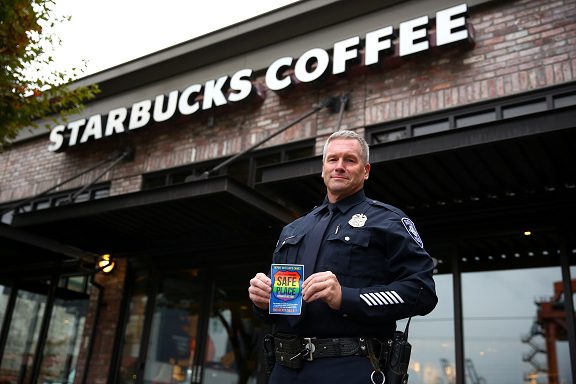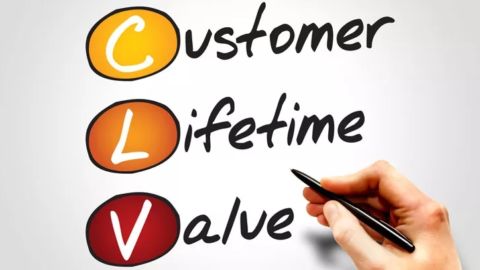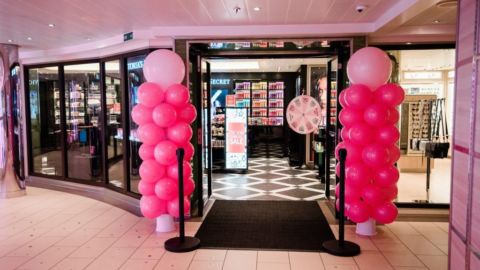Seattle Police Department LGBTQ liaison officer Jim Ritter

Amid images of street protests flooding the news since the Presidential election as well as reports of a rise in hate crimes, it was nice to see something positive pop up in my Facebook feed. As a bonus, it ties in with ways that retail stores can better relate to their communities. The story was about a Safe Place Program, initiated last year, that has rolled out to 97 Seattle-area Starbucks stores.
Run by the Seattle Police Department (SPD), the program is designed to identify secure places for victims of anti-LGBTQ-related crimes and harassment. Rainbow-colored window stickers identify the locations, and Starbucks store personnel receive training from the SPD. They can call 911 and allow the victims to remain on the premises until police arrive.
“We’re not wanting employees to tackle the suspect who is doing this,” said Jim Ritter, SPD’s LGBTQ liaison officer and a mover behind the program. “We want to make sure the employees stay safe and people in the businesses stay safe. Remember, these suspects don’t want to be seen. They don’t want to be following victims into a room full of people who can identify them.”
“This definitely aligns with our values as an organization — to create a safe and inclusive environment in our stores,” said Heather Jennings, Director of Starbucks Regional Operations. “It’s been really well-received by our store partners. I think what Jim is doing is about bringing the community together to say harming people, whether they be LGBTQ or not, isn’t acceptable.”
Additionally, across the country, many Starbucks stores take part in local “Coffee with a Cop” events, where residents gather in stores with local police officers to discuss issues of importance and create a safe and welcoming forum for dialogue, according to a Starbucks spokesperson.
From Selling Space To Town Square
While Starbucks has long identified its cafés as “third places” (i.e. neither home nor work) where people can feel comfortable and safe, this kind of concept seems applicable to a fairly wide spectrum of retail spaces. We’re hearing more and more that brick-and-mortar retail stores are taking on the role of “town squares,” multi-purpose gathering places rather than just boxes in which to sell things. Forbes recently identified five rules for a retail town square, and while “providing a safe space for all” isn’t among them, perhaps that’s only because it’s so obvious.
Of course, retailers need to be both smart and responsible about these types of efforts. It’s important to note that the Starbucks program is being run by a government agency (the police department) and includes many more participants than just Starbucks: 600+ businesses, plus the Seattle School District. The training aspect also is important: the last thing anyone wants is for a barista or sales associate making an incident worse or getting injured themselves. I can only imagine the liability-related nightmares that would keep a retailer up at night if that happened.
Still, participation in this type of program seems to me well worth whatever risks it entails. In what may be the understatement of the century, the 2016 election has been a divisive one, revealing deep cracks in the social and political fabric of our country. It’s going to be up to individuals, organizations, and yes, companies to keep it from shredding altogether. No matter where you are on the political spectrum, it’s hard to argue with the value of keeping people safe from bullying, harassment or worse, and this seems to me like an excellent way for retailers to help.













